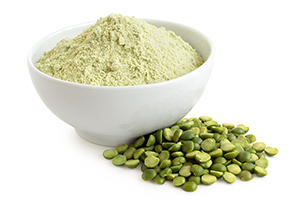 The plant-based protein sector is undergoing significant innovation, particularly in pea protein and vegan protein formulations. Driven by consumer demand for sustainable, nutritious, and functional alternatives, the industry is witnessing advancements that enhance product quality and broaden application possibilities.
The plant-based protein sector is undergoing significant innovation, particularly in pea protein and vegan protein formulations. Driven by consumer demand for sustainable, nutritious, and functional alternatives, the industry is witnessing advancements that enhance product quality and broaden application possibilities.
Advancements in Pea Protein
Enhanced Bioavailability and Amino Acid Profiles
In March 2024, Cargill introduced a micellar pea protein with improved bioavailability and a higher amino acid content, targeting athletes and fitness enthusiasts seeking plant-based options for muscle recovery and performance.
Functional Blends for Diverse Applications
Glanbia launched a combined pea and rice protein blend in 2024, incorporating probiotics to support gut health. This formulation caters to the growing market for functional foods and beverages that offer both nutritional benefits and digestive support.
Improved Texture for Snack Bars
Ingredion‘s Vitessence Pea 100 HD, released in July 2024, is designed specifically for cold-pressed bars, maintaining softness throughout shelf life and enhancing the sensory experience of plant-based snacks.
Easily search Compliance Highlights, Natural and Organic claims and Certifications with Prospector Premium, learn more here!
Innovations in Vegan Protein
Microencapsulation for Nutrient Delivery
Researchers have developed plant protein-based microcapsules capable of encapsulating both hydrophilic and hydrophobic compounds. These biodegradable capsules offer controlled release of nutrients, expanding the potential for fortified vegan products in various industries.
AI-Driven Product Development
Companies like NotCo are leveraging artificial intelligence to create plant-based products that closely mimic animal-derived counterparts in taste and texture. Collaborations, such as NotCo’s partnership with Oscar Mayer to develop vegan hot dogs, exemplify the use of AI in accelerating product innovation.
Market Trends and Consumer Insights
Growing Market Value
The global pea protein market is projected to grow from USD 2.1 billion in 2024 to USD 3.7 billion by 2029, reflecting a compound annual growth rate (CAGR) of 12.0%.
Demand for Transparency and Sustainability
Consumers are increasingly prioritizing transparency in product labeling and sustainability in sourcing. Brands that effectively communicate their environmental impact and ingredient sourcing are more likely to gain consumer trust and loyalty.
Future Outlook
The intersection of scientific innovation and consumer demand is propelling the plant-based protein industry forward. Continued research and development are expected to yield products that not only meet nutritional needs but also align with environmental and ethical considerations.
As the industry evolves, collaboration between food scientists, technologists, and marketers will be crucial in bringing next-generation plant-based proteins to market.
The views, opinions and technical analyses presented here are those of the author or advertiser, and are not necessarily those of ULProspector.com or UL Solutions. The appearance of this content in the UL Prospector Knowledge Center does not constitute an endorsement by UL Solutions or its affiliates.
All content is subject to copyright and may not be reproduced without prior authorization from UL Solutions or the content author.
The content has been made available for informational and educational purposes only. While the editors of this site may verify the accuracy of its content from time to time, we assume no responsibility for errors made by the author, editorial staff or any other contributor.
UL Solutions does not make any representations or warranties with respect to the accuracy, applicability, fitness or completeness of the content. UL Solutions does not warrant the performance, effectiveness or applicability of sites listed or linked to in any content.
